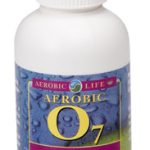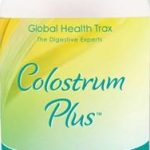It’s not unusual to hear or read something almost every day about air pollution. It’s become a part of everyday life. However, there’s a very good reason – air pollution in most towns and cities is real, thanks to a combination of motor exhausts, chemical by-products and all manner of industrial emissions. And the problem is, in addition to what it all does to the natural world of course, none of it does our insides any good. Especially our lungs. Indeed, bad air can cause stress and even serious damage to lung tissue.
It’s not just outdoors
And, unfortunately, it’s not just outside that’s full of toxins; the reality is that indoor environments appear to be just as bad, if not worse, on this score. You may be sceptical, but studies suggest when a baby crawls over a patch of normal carpet they’re likely to inhale the equivalent toxicity of four cigarettes1. Now, that may sound frightening (and, in many ways, it is), but it’s come to be normal in our everyday world. Every environment in the world around us contains a good deal of toxicity which we’re exposed to as soon as we’re born, pretty much up until our dying breaths – and owing to dust mites, mould, mildew and chemicals, that includes indoors as well as outdoors environments.
Don’t doubt it. In the United States alone, the US Environmental Protection Agency (EPA) reckons that one in six of homes are filled with airborne pollutants that harm their occupants’ health. Meanwhile, the American College of Allergies has claimed that up to a half of illnesses in the country are down to air pollution indoors not outdoors.
Again, that sounds like a staggering claim to make, but consider just how many of our homes we live in and the offices we work in today are super-insulated and rely on pollutant-spreading air conditioning systems to control air flow. To that end, it’s also been claimed that air inside buildings may contain up to 100 times the toxin level as the air outside them, while a direct correlation has also been found between depression and the high concentrations of mould in homes2.
Animal allergens
Moreover, love animals and keep pets as so many of us do (and why shouldn’t we?), it also feeds the allergen levels in our homes. Conventional wisdom suggests this is all about the kind and length of hair our pets have – the longer haired a cat or dog the more allergens they’ll give off. Yet, while cat or dog allergies are often linked to their hair, that’s only half the truth because it’s often more specifically about the dander beneath the cat or dog’s coat of hair that’s responsible for the allergens. And, in some cases, the source may be the saliva that coats the hair when the animal – in this case usually a cat – lick their fur.
Fair dos, even many of those who suffer from such animal-derived allergens are content to put up with the sniffles and some coughing while living with their quadruped companions – and who would blame them? That said, who wouldn’t advise someone to perform a regular lung cleansing if they’re putting up with either pet-based allergens or respiratory and/ or sinus issues owing to the quality of air in their homes? Why wouldn’t you want to try out something that may prevent you from, at some point, suffering a severe allergic reaction?
Why not try a lung cleanse?
Over the course of human history, naturally-occurring remedies have been relied on by many civilisations, not least indigenous cultures, for respiratory conditions. Plants including the likes of eucalyptus, lungwort, peppermint and osha root are all examples here. Yet, unfortunately, for some people, purchasing such plants individually isn’t always an affordable or practical option, but there is a solution. Rather than buying – or even trying to grow! – this quartet of herbs on their own, you can consume all of them together in one of the most well regarded of lung cleanse supplements, Allertrex – which is available via us at The Finchley Clinic.
Enabling improved respiratory function then, Allertrex is absolutely ideal for a thorough cleansing of your lungs; detoxifying, cleaning and refreshing the fragile linings of the lungs’ bronchial passages and removing from them built-up environmental toxins, damaging organisms and other irritants.
Also, for further natural respiratory support, you might consider these two supplements:
Aerobic O7 – contains nascent oxygen, which prompts the formation of white blood cells, essential for supplying damaged cells (including those in the lungs) with the super-oxide they require for repair and good health.
Colostrum Plus – in addition to supporting both the immune and digestive systems, this product’s great for tackling any type of inflammatory issue, especially allergies and their effect on the lungs.
References:
1. ‘Facts about indoor quality’. Intuitive Environmental Solutions, LLC. 2008
2. Brown University. ‘Household mold linked to depression’. Science Daily. http://www.sciencedaily.com/releases/2007/08/070829162815.htm. Aug 2007.


